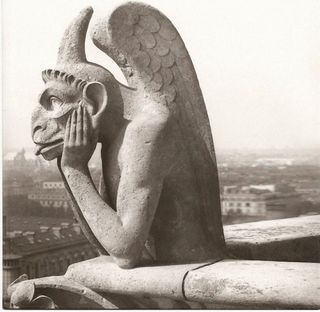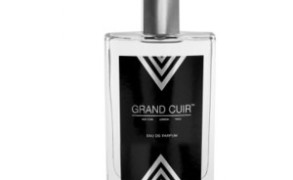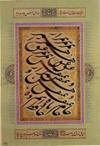
What fragrance terms do you find confusing? About which perfume concepts would you have liked to learn more?
Amber, musk, petally, floralcy, butyric, crisp…. Fragrance professionals struggle with the language, with which to describe perfume, and it does not help matters that the information available to the consumers is often extremely confusing. Among the perfume adjectives that I have always found confusing (and still do) is soapy, which can mean lots of different things to different people.













52 Comments
Alnysie: I’d say “creamy,” as in “creamy sandalwood,” that I read recently. Probably simply because I haven’t smelled enough sandalwood to perceive the difference!
Also, “cold” scents. I think I understand, by opposition to what I’d consider a “warm” scent, but it seems a very arbitrary term in certain cases… September 27, 2011 at 6:55am
Suzanna: I would like to find a term to describe those “new” musks, such as the musk used in the new No. 19 Poudre. This transcends mere “clean” (which might imply soapy or at least freshly scrubbed) and is the most synthetic-smelling musk yet.
“Powdery” is one I have an issue with. I dislike the type of powdery that smells like Teint de Neige, and yet I have no problem with No. 5. The word “powdery” can turn me off even trying a fragrance. September 27, 2011 at 8:10am
MJ: Powdery has always been confusing to me. Suzanna mentioned No.5. Is it the resemblance to the scent of Johnson’s baby powder? If so what is the scent in Johnson’s baby powder? September 27, 2011 at 8:47am
katrin: I’m still wondering about “sparkling”. September 27, 2011 at 9:21am
Martyn: As Lucy says, these terms are entirely subjective – both in our understanding of them and in their application. One thing that I’ve found difficult is that men’s perception of odour is often different to women’s, so we don’t actually smell the same thing, no matter what name is given to it.
“Powdery”, to me, is a dry scent, but one that doesn’t grab you by the back of the throat like the smell of bleach. Many flowers, particularly wild flowers (ivy, ceanothus, for instance) have a powdery smell that is nothing like what I’d class as “floral”. Even rose (rosa rugosa) is close to powdery when compared to, say, lily-of-the-valley (which is definitely floral). September 27, 2011 at 9:32am
Ines: I’ve noticed that clean for me can have a variety of interpretations, in my mind at that. Not only with what other people meant. September 27, 2011 at 6:50am
zazie: “creamy sandalwood”- indeed!
I used to think it was an oxymoron, part of the mysterious jargon of perfume bloggers.
I recently stumbled on a few sandalwood fragrances that had a kind of milky note (SL santal de myosore, and an Amouage sandalwood attar), so I just realise I do not know what real sandalwood smells like!
I suppose the usual references – bois des iles, CC10 and Tam Dao – are not of the “creamy sandalwood” variety… September 27, 2011 at 11:26am
Patty: I agree with soapy (this is a negative assessment to me, whereas many people like soapy notes). Creamy. White flowers. Pink flowers. Musk – this tells me nothing, as musk can now range from dirty and animalic all the way to laundry detergent-clean. Balsamic. Chypre, in relation to the new fragrances which identify themselves as such, but do not have the traditional chypre base. September 27, 2011 at 11:31am
Nikki: very interesting thread…thank you! September 27, 2011 at 11:40am
zazie: Apart from creamy sabdalwood, the other mysterious label is “clean musk”.
I suppose it means musky notes where the animalic-red fruity facets have been removed.
Yet the definition is so broad, it is confusing and not very informative: I think of the clean musks of kai and beyond love, that smell soft and like warm skin, and then there the others…I suppose not many people smell them, but they are not just clean. They are centrifugation-cycle-laundry-machine loudly clean!!! Blah. September 27, 2011 at 12:21pm
Lucy: It’s all so subjective, no wonder there are struggles with the language. Of course general terms like amber and tea and rose do mean something specific. Someone will make a dictionary of these terms eventually, so we can all refer and agree on what crisp and soapy mean. September 27, 2011 at 8:59am
Victoria: Clean how I was taught is the absence of any animalic notes, save for white musks (which are not really animalic anyway.) But yes, it is often confusing anyway. September 27, 2011 at 9:47am
Victoria: “Creamy sandalwood” is something I use often. I mean by it the milky scent, as opposed pencil shavings (or hamster cage!) dryness that many woods (especially cedarwood) have. Plus, sandalwood actually contains molecules that smell like warm milk. September 27, 2011 at 9:49am
Victoria: Many people say that Chanel No 5 is powdery because of aldehydes. I do not find it powdery either. Powdery is a very specific term among professional perfumers, and it means an accord of heliotropin, citrus and some herbs (like Johnson & Johnson baby powder, for instance.) Fragrances like Ombre Rose or Love’s Baby Soft are quintessential powdery blends. September 27, 2011 at 9:51am
Victoria: Yes, you are right. As I replied to Suzanna above, that would be the powdery standard! 🙂 September 27, 2011 at 9:52am
Victoria: After all, professionals have a language that they use to communicate among themselves. The trouble is that there is no education for the consumers at all.
As for crisp and soapy, those are my least favorite words, even though I do use the former time to time (I try not to!) My perfumery school mentor used to get irritated whenever I used soapy or white floral, because the former means nothing (it is not an adjective used among perfumers), while the latter is too vague (there are many white florals! which one do you mean?) September 27, 2011 at 10:03am
Victoria: If I could have a shot at it, I would say that it means citrusy or tart fruity. September 27, 2011 at 10:04am
Victoria: Very true, some woods are not even woody! Sandalwood is not really dry woody like cedarwood. Wormwood is really herbal, sweet, etc. September 27, 2011 at 10:05am
Andy: Most confusing terms? Definitely balsamic, as almost everything seems to be described as “balsamic”. But I honestly have no idea what it means. Another term I find confusing is musk, since, as a previous commenter wrote, musks can range from laundry clean to rabid-animal dirty. Though I understand it, I feel the mention of Galbanum in the notes of a fragrance is misleading. Knowing real Galbanum, it tends more toward musky and leathery to me than leafy-fresh, and most fragrances listing Galbanum are more of a violet leaf green than vegetal green. Oh, and I find orange blossom to be a confusing note, because I find many “orange blossom” fragrances to smell like grape candy rather than rich, Indolic white flowers. September 27, 2011 at 2:56pm
Victoria: You are right, those fragrances are rich in cedarwood and other dry woods. Pure sandalwood smells like boiled milk and roses. It is not dry at all. In fact, some perfumers do not consider it a true woody note.
Sent via BlackBerry from T-Mobile September 27, 2011 at 11:30am
Elisa: I think many people perceive aldehydes as sparkling, though I don’t get that effect unless it’s just the tiniest smidge of aldehydes. Most perfumes that are known for being aldehydic (Chanel No. 5 or 22 or Vega for example) smell smeary to me, like I’m smelling them through a soft-focus lens. September 27, 2011 at 11:34am
Elisa: Agreed on balsamic. I don’t know how it differs from amber. September 27, 2011 at 11:36am
Victoria: Amber is really a composite term like wood, floral, spicy. Some ambers are balsamic (amber notes in SL Ambre Sultan,) others are dry and woody (Light Blue,) yet others are animalic and marine (ambergris family and some clary sage derivatives.).
Sent via BlackBerry from T-Mobile September 27, 2011 at 11:41am
Victoria: You are welcome, Nikki! I'm enjoying reading it too.
Sent via BlackBerry from T-Mobile September 27, 2011 at 11:42am
Victoria: Chypre! It has become so vague that it can mean anything. To think that SJP Lovely is classified as a chypre…
Sent via BlackBerry from T-Mobile September 27, 2011 at 11:43am
rosarita: Thank you for mentioning white florals! I quite enjoy jasmine & orange blossom, which are white florals; on the other hand, I really dislike tuberose and gardenia. It’s often impossible to know exactly what flowers are being discussed. September 27, 2011 at 4:04pm
Elisa: So am I right in thinking that “balsamic” applies to the more resinous ambers (not woody ambers and ambergris)? September 27, 2011 at 12:18pm
Victoria: Yes, that's right. Labdanum based ambers, as a rule. I will have a post about this group of fragrances this week.
Sent via BlackBerry from T-Mobile September 27, 2011 at 12:26pm
Elisa: Thanks, very helpful! That’s how I generally interpret “amber” unless otherwise specified, and it’s the kind of amber I love. (Mmmm, labdanum.) September 27, 2011 at 12:30pm
Kym: I have found indolic jasmine will often turn soapy on me. Not always, it could have something to do with the weather, but when it does happen, I suddenly feel like I have a bar of Ivory Soap in my mouth! September 27, 2011 at 4:32pm
Victoria: Me too! To me, labdanum smells like dark caramel, incense and old books. 🙂
Sent via BlackBerry from T-Mobile September 27, 2011 at 1:01pm
kjanicki: Balsamic has always confused me. I keep thinking of salad dressing or balsam fir trees. But it applies to ambers like labdanum? Good to know. September 27, 2011 at 2:22pm
Marika: Maybe, in the way “powdery” refers specifically to Johnson’s Baby Powder, “soapy” refers to Ivory soap? September 27, 2011 at 6:29pm
Victoria: Yes, labdanum is a classical balsamic material, but to be more precise, balsamic is a composite term in itself. I was taught to use this word to describe materials with a heavy, sticky, sweet, unctuous scents. For instance, balsamic materials includes balsamic-almond materials like heliotropin, coumarin, hay. Balsamic-vanilla includes vanilla, vanilla synthetics. Balsamic cinnamic materials include peru balsam, tolu balsam, etc.
You are actually spot on about your balsamic vinegar and fir balsam references! The first one, for instance, has all of the traditional balsamic facets–sweetness, richness, darkness, and the strange dry-sticky feeling of many balsams. I have smelled a very old balsamic vinegar recently that smelled so resinous and rich, it could have made a great base note in an oriental perfume. 🙂 September 27, 2011 at 2:43pm
Annunziata: I’m so glad you mentioned those fragrances, because I’m on the hunt for creamy sandalwood. I’ve been a little afraid of the SL, and curious about the Amouage. September 27, 2011 at 6:46pm
marika: “Soapy” is the one that gets me. I have wondered whether it might refer to some aspect of benzoin, or something else in the base notes. I think I know what benzoin smells like, but I’m not sure. Anyway, how many people really know what soap smells like these days? Unless you go out of your way to avoid it, soap is always scented. September 27, 2011 at 3:45pm
Victoria: Yes, that is why he did not like me using “white floral”. It made no sense what I was talking about, considering that they are quite different. September 27, 2011 at 6:40pm
Victoria: Most musks today are clean, laundry type musks. Makes for a predictable finish to most fragrances today. September 27, 2011 at 6:41pm
Victoria: Galbanum is like hot pepper in perfumery–you only use a tiny bit to give green notes that bright effect. In strong dilutions, galbanum tends to be green and leafy. Otherwise, it is as you say, leathery, balsamic, dense. September 27, 2011 at 6:43pm
Victoria: Sometimes it does! Ivory is scented with citronella, so for many people those notes (rose-like, sharp citrusy) recall soap. On the other hand, if you were born in Europe, you are much more likely to associate soap with aldehydes. For instance, most soap from my childhood was scented with Chanel No 5 type of fragrance (floral aldehydic.) And to someone who grew up in India, soap smells different still. Which is why it is a very vague adjective. September 27, 2011 at 6:45pm
Victoria: Benzoin smells like smoky vanilla and cinnamon. It can be more powdery or leathery, depending on the pairings, in which it is used. September 27, 2011 at 6:47pm
Victoria: Also, Serge Lutens Santal Blanc is creamy (although I like Santal de Mysore much better; Santal Blanc can get cloying.) September 27, 2011 at 6:49pm
Carla: In both cookery and perfumery, “aromatic” bothers me. It’s too general, or else I don’t understand the meaning. Please explain aromatic! For example, what’s the opposite? Scentless? September 27, 2011 at 11:29pm
Ines: I’m with kjanicki on balsamic. 🙂 Can’t help but think of vinegar (as I tend to use that variety a lot). September 28, 2011 at 3:45am
Carla: Thank you, this makes sense to me September 28, 2011 at 10:04am
Annunziata: Thanks for your reply — I believe, in the spirit of thorough investigation, I will have to try them both. September 28, 2011 at 10:15am
Victoria: Ah, it has a very precise meaning. In perfumery, aromatic means green, herbal, camphorous notes associated with herbs like lavender, rosemary, sage, etc. So, when you see aromatic (as in "an aromatic top note" or "aromatic fougere",) you can be sure that these camphor rich herbs are discussed.
Sent via BlackBerry from T-Mobile September 28, 2011 at 6:43am
Flora: I wish “musk” would be strictly reserved for notes that actually smell something like the real thing – how can a term like “laundry musk” be anything but an oxymoron? When I see musk listed as a note, how do I know what kind it is unless they get cute with terms such as “crystal musk” in which case it’s obviously the “clean” sort? September 28, 2011 at 4:29pm
Isa: In my own jargon, “powdery” would be Teint de Neige, obviously, or Love Chloe. While the aldehides give a “soapy” impression, like in Chanel 5 or Caleche and it’s something completely different. Powder and soap are not the same. Maybe I find aldehides soapy because I have the influence of the Spanish showergel Magno. September 29, 2011 at 12:21pm
Isa: Sorry, I meant “aldehydes”. September 29, 2011 at 12:24pm
Nora: I was wondering if anyone can tell me what a “round fragrance” means.
Thank you. January 8, 2012 at 4:23am
Victoria: It means a smooth, soft fragrance, with nothing sharp or rough. January 8, 2012 at 9:49am